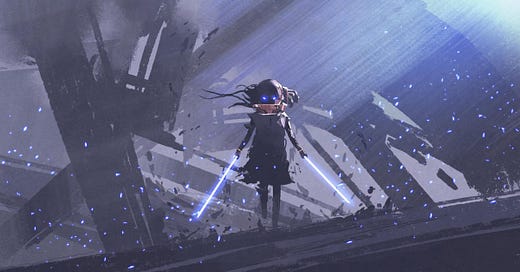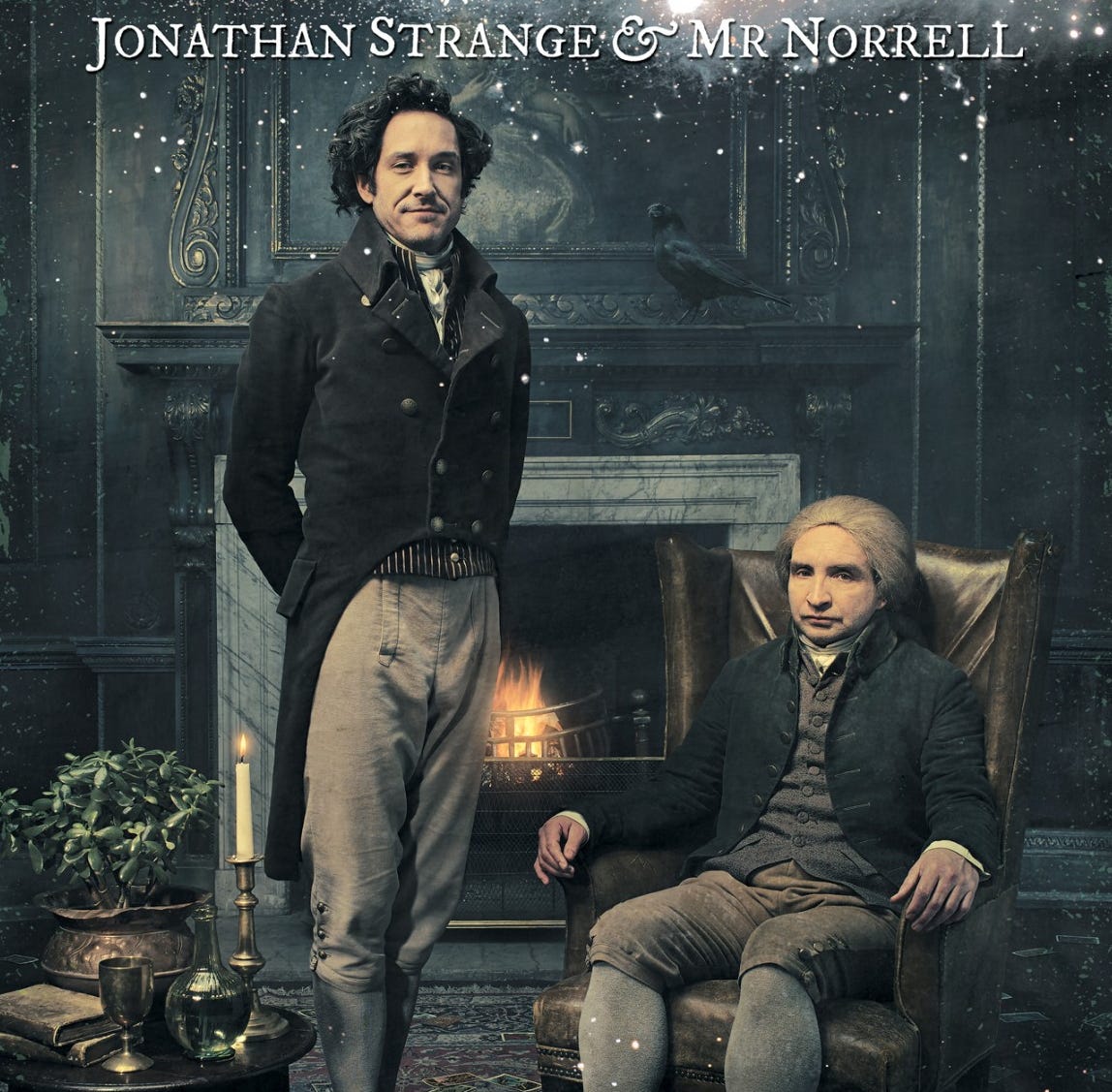The 5 Best Sci-Fi/Fantasy Novels to Recommend to Your Non-Sci-Fi/Fantasy-Loving Friends
Among the great culture wars of our time -- PC vs Mac, iPhone vs Android, Coke vs Pepsi -- nothing is perhaps more perplexing than the war between the genre-reader and the literary reader. OK, the Coke vs Pepsi one was pretty silly too. We all have different tastes, people, so get over it. But we've all heard the "fantasy is a waste of time" or "I just can't get into space ships and things" coming from the literary crowd. And to be fair, I know plenty of people that scoff when I mention they should read Plato's Republic or A Tale of Two Cities or A Man Called Ove or Tina Fey's Bossypants. (Hey, Bossypants is literary, isn't it?)
In the end, we all choose to do... something.. for entertainment. It might be playing a musical instrument, or playing D&D, or writing poetry, or binging Game of Thrones. And for readers, isn't it enough that we all love to read?
I get it. My reading list used to be Dragonlance and Magician's Apprentice and Tolkein at least once a year. One of the last books I read was SPQR, a History of Ancient Rome. Not even fiction! And I can't even call it a page-turner. But when I ponder what to read next, I do often ask myself, "What am I going to get out of this?"
To have lived my entire life without fantasy? Without science fiction? What sort of robot would I be? And would the fact that I turned into some type of intellectual robot make me science fiction? Maybe not. But, if you know one of these "I just don't do fantasy or sci-fi" folks, here are a few novels that might change their mind.
Slapstick by Kurt Vonnegut
Which novel to start the list? There's a lot of great choices, but also a lot of good reasons to rule them out. Stranger in a Strange Land by Robert Heinlen comes to mind. Excellent ideas. Great book for its time. But the rampant misogyny makes it a hard read. Wicked? Awesome choice. But doesn't everyone know it is an awesome choice by now? Hasn't every non-Sci-Fi / Fantasy lover already seen the musical?
Slapstick might be a bit of a stretch to label science fiction -- although it has miniaturization and spaceships -- and is more of a dystopian novel, which I've shied away from in this list. But technically, it's set in a scientifically advanced future, and Vonnegut has always loved to play around with some science fiction elements.
In fact, I'd put Slapstick on a list of "literary" books to recommend to Sci-Fi / Fantasy lovers. But mostly, it's on this list because (1) the writing is superb, (2) it is thought-provoking and (3) it's absolutely hilarious.
Jonathan Strange and Mr. Norrell by Susanna Clarke
Now we are getting into the thick of it. I was introduced to Jonathan Strange and Mr. Norrell via the mini-series on Netflix, but it was a mere days after finishing the last episode before I downloaded the novel on my iPad. I wanted to wait longer so the story could sink further into my consciousness, but I just couldn't. I wanted to be in that world some more, and mostly, I wanted to read about everything the limited series could not cover.
The writing is fantastic. It is both a throwback to the days of having a palpable narrator and yet something modern and new at the same time. It's a long, long read. (Think: A Game of Thrones novel.) But it's worth every word. The pure strength of writing and imagination of this tale can easily keep non-fantasy lovers enchanted.
Song of Achilles by Madeline Miller
I could easily put Miller's Circe on the list instead of Song of Achilles. They are both excellent reads from a master storyteller and one of the foremost authorities on Greek mythology. These books reimagine the myths, filling in those empty spaces in Greek mythology that gives us a context for the stories many of us know so well by now.
When I think of a novel that almost anyone would love no matter which genre they pick as their favorite or how snobbish they might be in their reading, Song of Achilles is one of the first to come to mind. As the name implies, the novel tells the tale of Achilles. But unlike the Iliad and subsequent works, it tells the whole tale, starting with Achilles as a kid.
Dune by Frank Herbert
If Dune were written today, I think it might be as well known for its intellect as its great story. There's just a lot to love about this book from the political intrigue to the idea of forced evolution based on harsh environments. Dune is exceedingly well written, the story itself flows like a river begging you to keep reading well into the night, and it is filled with thought-provoking ideas.
And it's a fun ride. That might be the most important part of it. The movie with Kyle MacLachlan is a bit campy, and I think too often people picture him on the back of a worm when they think of Dune. Hopefully, the upcoming movie will capture more of Herbert's novel -- although, like many Dune-lovers, I am quite fond of the David Lynch version.
Ender's Game by Orson Scott Card
I almost wish this one hadn't been made into a movie so more people could experience one of the best-written novels of all time. On the good side, some of the best parts of the novel aren't even covered in the movie as they focus more on Ender than his siblings.
From an intellectual standpoint, there are few other sci-fi or fantasy novels that can stand with it. There's just a lot of cool stuff to think about when you read this novel. From a sci-fi or story point of view, it's again top-notch. It's a fast read that makes you immediately want to read it again.
It's almost unfortunate the Card kept writing. Speaker for the Dead was good... but compared to Ender's Game, it was a B-. Xenocide slid a little further down, and by Children of the Mind, it was time to stop reading. Sci-fi fans often put Ender's Shadow up there against Ender's Game... but, no. Not even close. Ender's Shadow is a very fun read and thought-provoking in its own right, but it just doesn't come close to the impact of Ender's Game.
In short: Feel free not to read past Ender's Game. You might like the subsequent books, you might not, but Ender's Game stands on its own.




